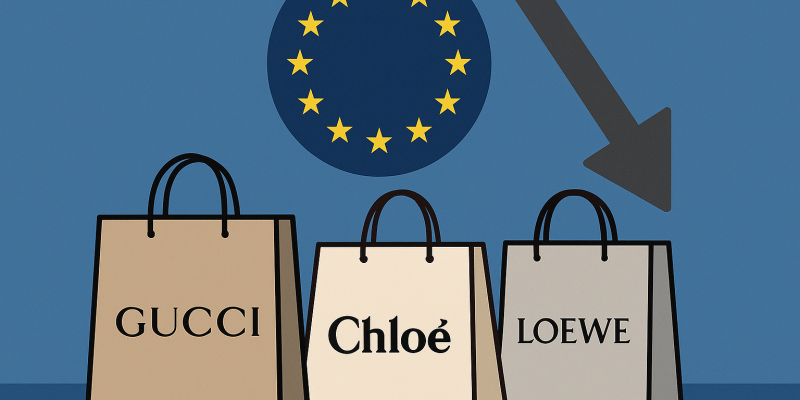
The European Commission has fined Gucci, Chloé, and Loewe a combined €157 million for breaching EU antitrust laws by limiting how retailers could price their products.
The decision exposes deeper issues within the luxury fashion market, where brand image, distribution control, and competition law increasingly intersect.
The EU’s probe revealed that the three high-end fashion houses, owned by Kering SA, Richemont SA, and LVMH SE, respectively, imposed illegal resale price restrictions on retailers across Europe.
By dictating how much boutiques could charge, the companies effectively prevented competitive pricing, leading to inflated costs for consumers.
Regulators crack down on luxury pricing power
According to the European Commission, Gucci received the largest fine of €119.7 million, followed by Chloé at €19.7 million and Loewe at €18 million.
The penalties come after EU investigators raided several fashion headquarters in April 2023 as part of a broader effort to expose anticompetitive practices across the luxury sector.
The Commission found that the brands restricted retailers from offering discounts or setting independent prices, undermining market competition.
Regulators argued that such restrictions violated Article 101 of the Treaty on the Functioning of the European Union, which prohibits agreements that distort competition within the bloc.
The EU said the unlawful conduct directly harmed consumers, who paid more for designer products than they would have in a free market.
Brussels emphasised that maintaining fair competition ensures better prices, broader choice, and innovation for European buyers.
Fashion’s delicate balance between exclusivity and legality
At the heart of the issue lies a tension between exclusivity and competition.
Luxury fashion houses often justify strict price controls as necessary to protect brand value, maintain customer perception, and prevent product devaluation.
However, such practices can cross legal lines when they restrict market forces that would otherwise determine retail prices.
The EU’s ruling signals that even heritage fashion houses are not immune to antitrust enforcement.
It also underscores the challenges for luxury conglomerates managing complex global distribution networks while ensuring compliance with regional regulations.
For consumers, the fines could lead to subtle but meaningful shifts in the pricing landscape.
Retailers may now enjoy more flexibility to adjust prices based on local market conditions, potentially improving affordability in regions where high-end goods remain out of reach for most buyers.
Broader implications for the luxury industry
The timing of the fines coincides with the European Commission’s wider review of competition practices within the luxury and consumer goods sectors.
Regulators are expected to continue monitoring supply chain transparency and pricing structures, particularly as e-commerce and cross-border retail expand.
The case also highlights growing regulatory convergence, as similar antitrust actions have emerged in other markets, including the UK and the US, where authorities are scrutinising luxury companies’ control over retail pricing and distribution.
As the European Union strengthens its enforcement agenda, luxury brands may face increasing pressure to balance exclusivity with fair market principles.
The post EU fines Gucci, Chloé and Loewe €157M for restricting retail prices appeared first on Invezz








